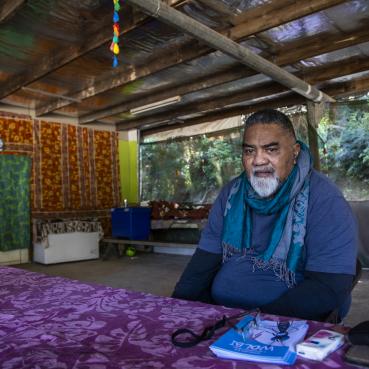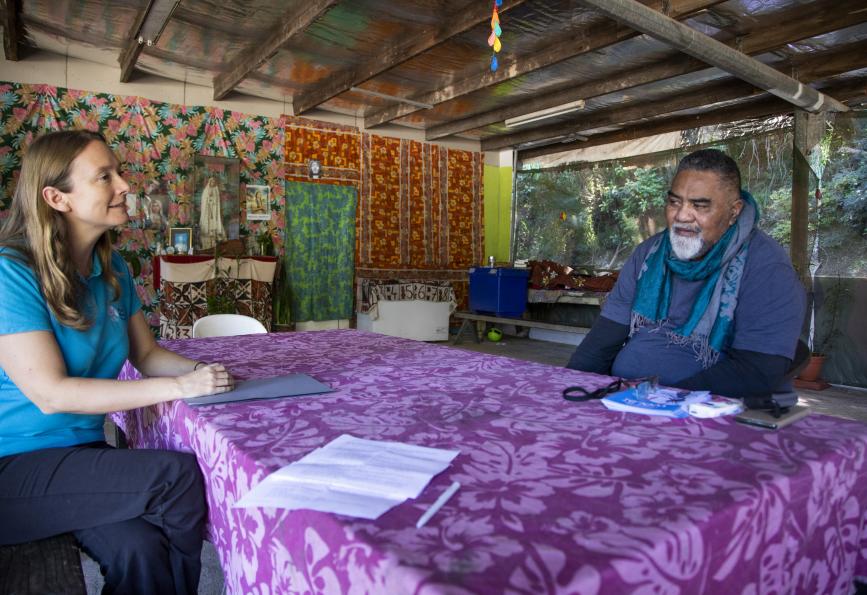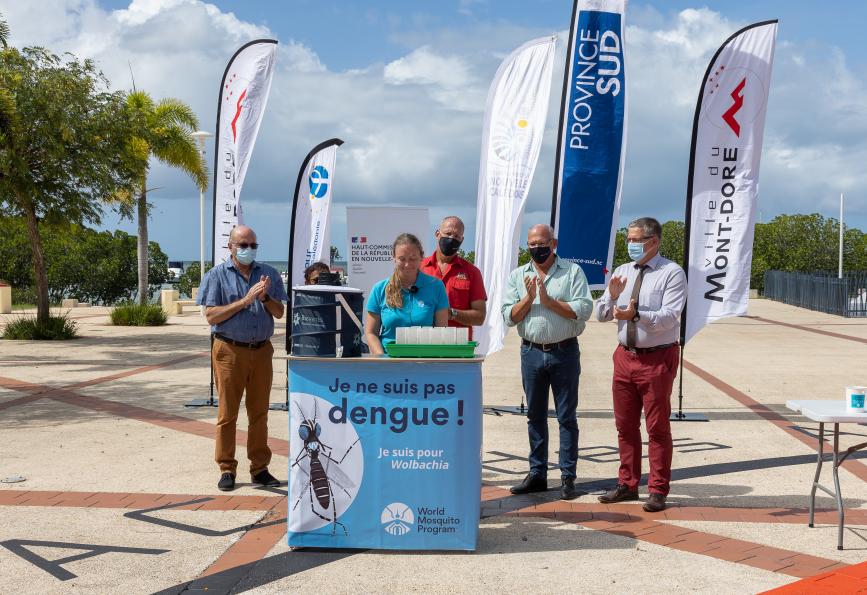Published Date: 17 February, 2022
New Caledonia is a French territory in the Pacific Ocean that had a big dengue problem. According to Nadege Rossi, World Mosquito Program Project Manager in New Caledonia, dengue was becoming worse by the year.
“During the last dengue outbreak we had 4,000 cases and 2 deaths. It used to be a huge issue. Outbreaks also become more common. Before, we had an outbreak every 3 or 4 years. But in the past few years, there was an outbreak every year. It was really bad for the population but also the government because it cost a lot,” says Nadege.
Matheo Seleone is one of the many residents of New Caledonia’s capital, Nouméa, who has suffered from dengue. For him, the scariest part was a workplace accident caused by his illness.

Not only was dengue worsening and affecting more and more people, but mosquitoes were becoming resistant to insecticide. This also risked the health of the community and killed other important insects like bees. There was a huge appetite among not only the Government but the community to find new ways to tackle dengue.
It was in this environment that the World Mosquito Program started conversations in New Caledonia. In March 2018, we announced a new partnership with the Government of New Caledonia, the City of Nouméa and the Institute Pasteur in New Caledonia to protect communities in New Caledonia from mosquito-borne diseases. But before releases began, it was time to convince the community.
“We did two surveys. The first was before any communication. We wanted to see what the general feeling was when we first started talking about the program. When they understood the program, they were pretty happy. We didn’t expect that because we have so many cultures, and some cultures were worried about the idea of playing with nature. We are not playing with nature, but we had to discuss that with them so they understood,” says Nadege.

After the first survey, the team got to work using all the networks they could to spread awareness about Wolbachia and how it could protect communities from mosquito-borne disease. The team used a lot of their own networks, and a local agency also helped spread the message.
“We used all the networks we could use. We had the support of many partners here to communicate to staff at large companies. I think the big mass media communication was really important, not just for Nouméa, but also our expansion. There is only one national tv channel here, so by having interviews and advertisements running we were able to ensure that all of New Caledonia was informed about the program. It was quite expensive, but very efficient.”
The team ran advertisements in cinemas, on radio and billboards, and via posters in the streets. Social media also played a really important role, where local celebrities spoke about the success of the Wolbachia method.
“Wolbachia was pretty much everywhere during this mass-awareness campaign. It was really good. We had a good budget dedicated to communications too, which was very important.”
Matheo was one of thousands who discovered the Wolbachia method via this campaign. Now, he’s a huge advocate for it.
“I remember hearing about the project on television, maybe two years ago. They explained the project, that they would be releasing some mosquitoes that would reproduce with the other mosquitoes. I never wish to get this virus again and if there is a collective fight in the country to overcome this, I'm ready to move my whole neighborhood to raise awareness, prevent and inform the population to fight against the dengue disease,” Matheo says.
Matheo wasn’t alone in his passion for the project. The campaign was a huge success, with the second survey showing an overwhelming 94% acceptance rate. And according to Nadege, these findings were reflected in their interactions with the community.
“We saw that also in the field. Field staff were meeting communities and people were telling us it’s perfect, very good… they were very supportive from the beginning.”
After the success of the campaign, the World Mosquito Program began Wolbachia mosquito releases in Nouméa in 2019. Two years on, the city has had no outbreaks, and has recently expanded into the neighbouring cities of Mt Dore and Dumbea.
Thanks to the success of Nouméa, recent surveys show a 91% acceptance rate in Mt Dore and Dumbea without any additional mass media. There’s now an appetite for the program across New Caledonia.

We know now that the population is quite aware, thanks to the experience in Nouméa and our work in two other cities. It’s quite famous! People from the north of New Caledonia are calling and asking ‘When are you arriving here?’. The Government here is also very supportive to expand the program to all the population of New Caledonia,” says Nadege.
Matheo is also hopeful for a New Caledonia without dengue, and says his community must work with the World Mosquito Program to protect themselves from mosquito-borne disease.
“Without dengue we would have no diseases, we wouldn't die because of this virus. Without these mosquitoes we wouldn't end up at the hospital in emergency. Without dengue I think we would live better.”
The World Mosquito Program gives thanks to of the French Government, Pacific Funds and the South Province for their financial support.

